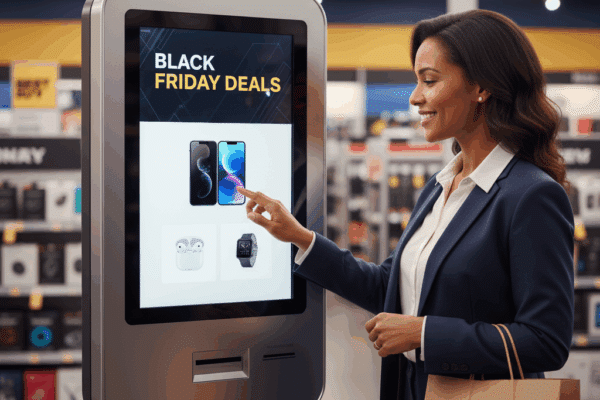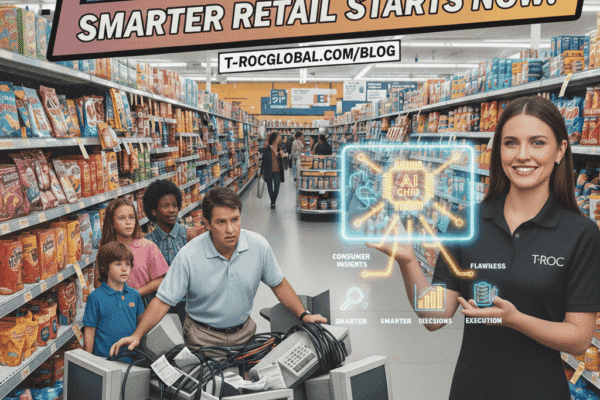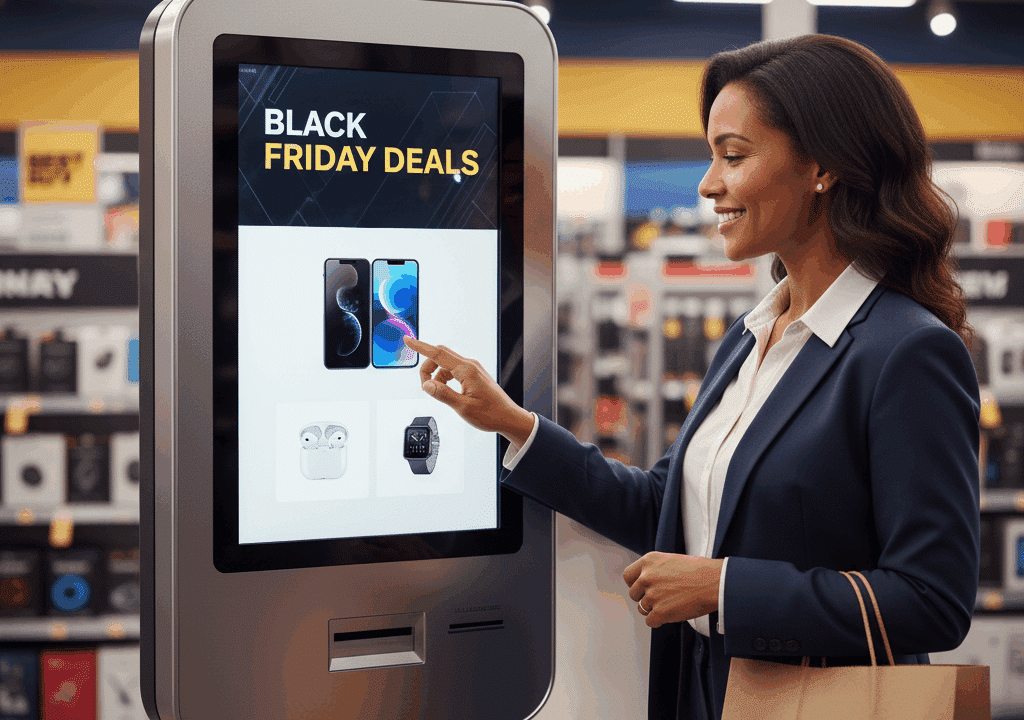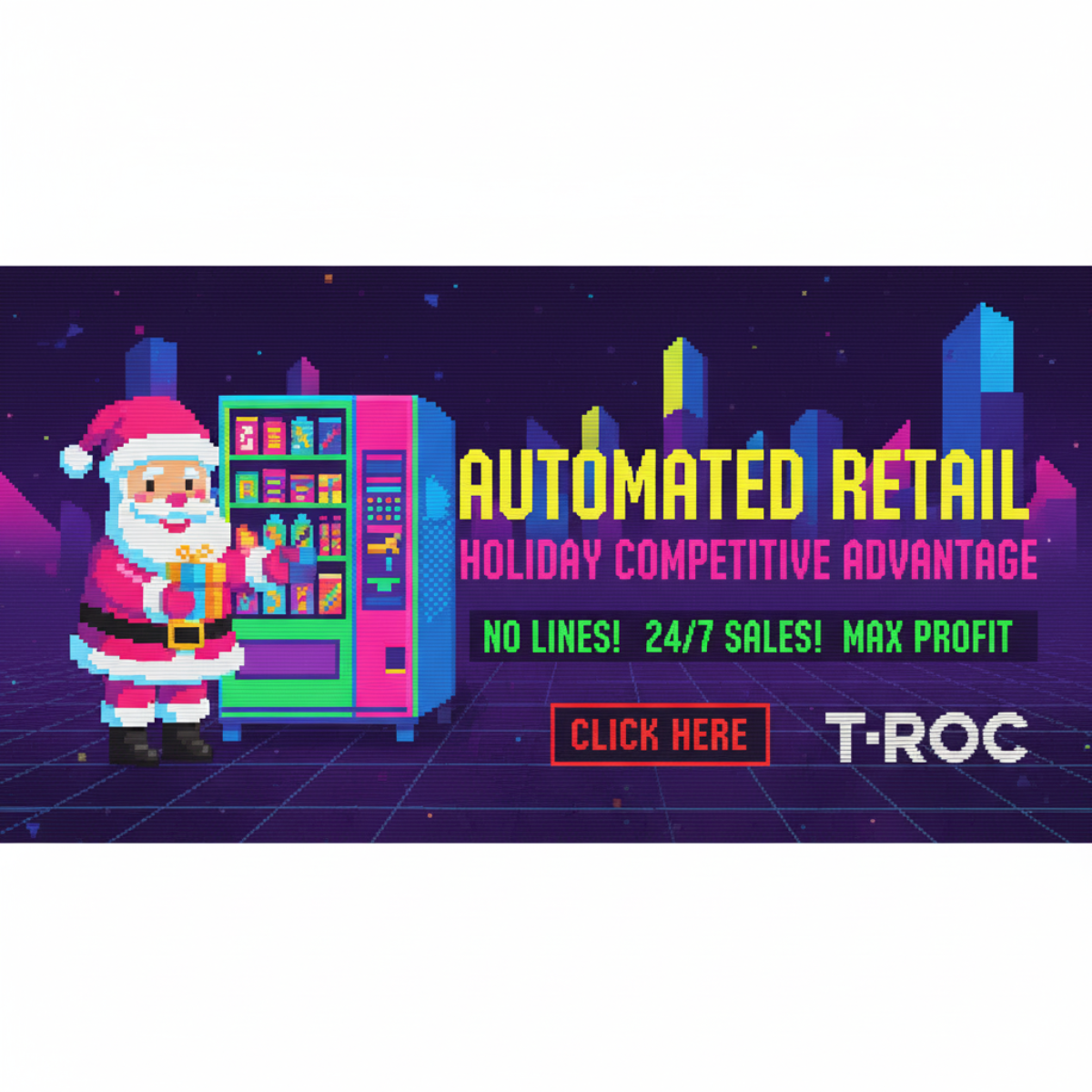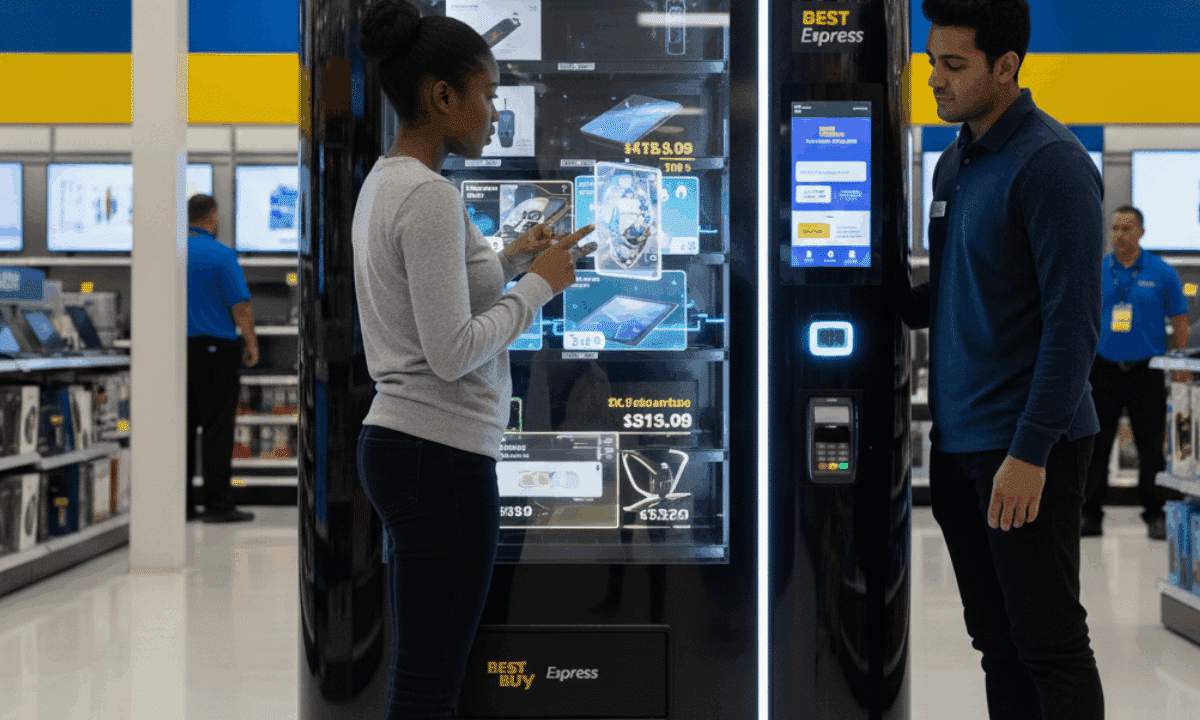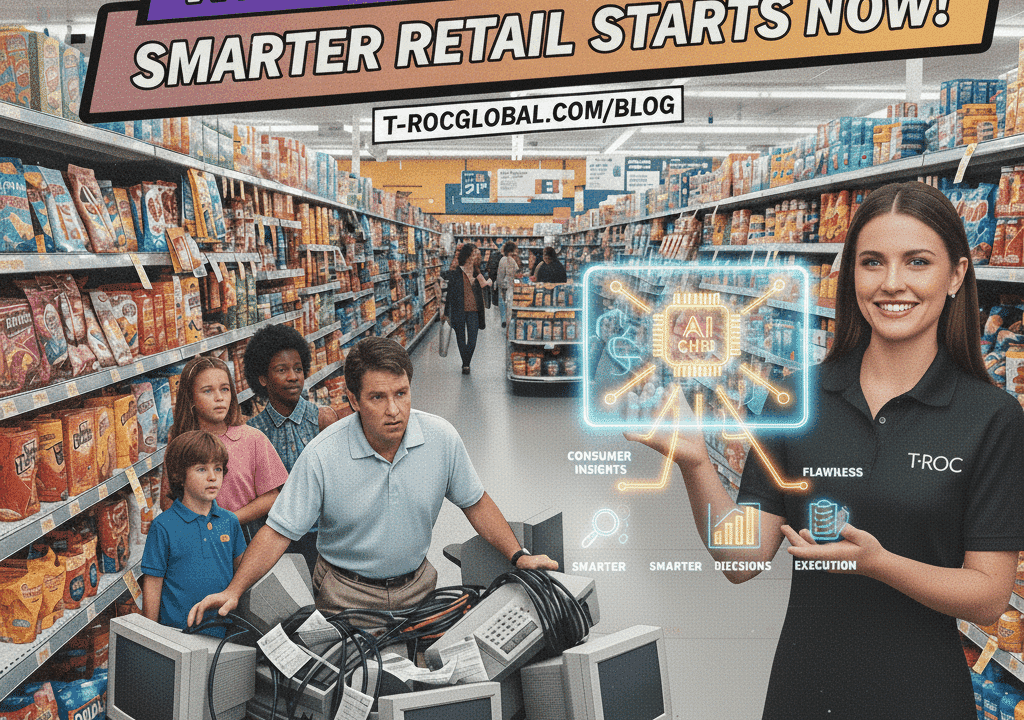
In-Store Demo Companies: The Value Of Showcasing Your Products Through In-Store Demonstrations
In a day and age when retail sales and consumer behaviors are being shaped by all manner of advanced technologies, one old-school marketing method still stands as one of the most effective ways to build awareness and create meaningful relationships between brands and their customers. We’re talking about in-store product demonstrations.
It seems as we move about in a world that’s constantly bombarding us with marketing messages and all sorts of digital information, the very human act of seeing a product up close, experiencing its benefits on a personal level, and having someone there to answer our questions is still one of the best ways to sell.
In-store demos break through the information overload we’re all experiencing in our daily lives. They stop us in our tracks and provide that unique opportunity to try something new without asking us to invest a lot of time or energy in the process. It’s somewhat ironic that in a world where retail technologies are answering our collective need for instant gratification, in-store demos are answering it as they always have – with personal and powerful customer engagements.
Have more specific questions or concerns about in-store demo companies? Learn more about what you should expect or schedule a free consultation with the experts at The Revenue Optimization Companies (T-ROC).
What is the purpose of an in-store demo?
There’s an old adage that says seeing is believing. It happens to be absolutely true and in this lies the power and the rationale behind brands and retailers offering in-store demonstrations. Even the most powerful advertising and marketing messages can’t compete with the simple truth that a great product, once it is experienced, sells itself. This is exactly why so many brands and retailers, from smartphones to frozen treats, offer in-store demonstrations. However, the reasons to conduct in-store demos go far beyond generating immediate sales. Here are a few other advantages brands and retailers that demo their products enjoy:
1. Build brand awareness. The best in-store demos allow customer to engage with an ambassador who is there to answer questions and support the sale. It’s a chance to build awareness with face-to-face interactions, and to convert customers who’ll turn around and tell friends and family members about your great product. Who knows, they might even post about you on their social media channels?
2. Marketing that combines all five senses. One of the most exciting aspects of in-store demos is that they’re able to showcase products with sight, sound, smell, taste and touch. Name another marketing method that can put all five senses to work generating added sales?
3. Own the store. Brands that are conducting product demos tend to grab the attention of customers far more than any merchandising or in-store signage. Even if customers don’t purchase on a given day, you’ll likely have won a place in their minds that just might lead to a conversion the next time they encounter your brand and products.
4. Immensely valuable consumer insight. Beyond those increased impulse purchases, perhaps the most valuable return on in-store demos comes in the form of consumer feedback. Imagine being able to talk directly to customers to get their opinions on your products. Perhaps, that potato chip flavor needs a little more refinement, or maybe there’s a whole new flavor customers might enjoy. Maybe that new technology product is missing a feature that you’ll surely want to add to the next generation? Maybe your branding isn’t resonating? Maybe you chose the wrong color scheme for your packaging? The point is in-store demonstrations allow you to engage customers one-on-one and this invites some pretty insightful feedback from individuals who will surely come at things from a variety of different backgrounds and perspectives.
5. Gauge consumer interest. Another advantage of in-store demonstrations is that they provide an unfiltered look at just how intensely consumers are interested in your brand or products. If you’re not experiencing a lot of traffic from engaged customers, perhaps it’s time to rethink your product or marketing strategy. Maybe they’re just not interested?
6. Lead generation. One common misconception about in-store demos is that they exist solely to generate immediate sales. This simply isn’t true. Let’s look at communications technology products, for example. Purchasing the latest smartphone, tablet or laptop usually comes with a pretty substantial price tag. It’s something consumers, rightly so, may wish to think about before making that final buying decision. In-store demos give them the chance to touch and test these products first-hand, which can certainly tip the scales favorably if the product performs as promised, and if the ambassador onsite is prepared to answer questions satisfactorily. The customer may not be ready to purchase on the spot, but when that individual is ready, guess who is likely to be among the top considerations?
What is an in-store demonstration company?
An in-store demonstration company is a partner that is there to facilitate the logistical and staffing needs that in-store demos require. Most brands and retailers simply don’t have the bandwidth do to this on their own, so they call on in-store demo companies to provide the expertise and resources necessary to get the job done effectively and cost efficiently.
The best in-store demo companies take full accountability for the demo process from start to finish. This includes helping brands and retailers select the right stores, events and locations; providing insight into the best time of day to conduct demos; tracking actual sales performance with solid data and reporting; and, perhaps most importantly, providing that sales X-factor – the individuals who’ll actually be performing the in-store demos.
What makes someone a good in-store demonstrator?
While there are certainly some inherent qualities that make a person right for in-store demonstrations, such as a having outgoing personality, being a good conversation starter, a good listener and a motivated salesperson, what arguably matters the most is that they are taught the ropes of effective demonstration.
In fact, one of the key differentiators to look for when considering in-store demo companies, is the people they bring to the table. Are they properly trained to provide your customers with a good experience? Do they know how to transform an interested individual into a paying customer? Do they represent your brand in the way you desire – be it fun and free-spirited or buttoned-up and professional.
A good in-store demonstrator lives up to the challenge in three primary ways.
1. Education – beyond just performing product demos or scooping out that new ice-cream flavor, a good demonstrator comes to the job with a deep understanding of the featured product. They’re able to come off as a genuine expert in and enthusiast for the product, which goes a long way to adding credibility to the experience.
2. Answers – an interested customer is likely to have a question or two about the product. A quality demonstrator is able to answer them honestly, accurately, and without hesitation.
3. Sales skills – Yes, a demonstrator is there to showcase a product. However a good one is also there to actively participate in the sales process. Yes, this needs to happen in the course of open and honest dialogue that builds genuine trust, but a demonstrator should always remember that the job includes closing deals.
What makes a good in-store demonstration company?
In a word – training. As we’ve established, the key to effective in-store demonstration is the team of individuals interacting with customers. So, it only makes sense that companies who invest the time and energy to train their demo teams to be effective representatives of a brand are those that yield the best results.
“We understand that to the customer our in-store rep becomes the face of the product and brand being demonstrated,” says Chris Green, Senior Vice President of Business Development for The Revenue Optimization Companies (T-ROC), a leading provider of in-store demonstration services to top brands and retailers. “We appreciate the level of responsibility that comes with representing our clients and we make sure every member of our in-store demo team is properly trained, prepared and tested before we put them on the floor,” adds Green.
Measuring in-store demo success
As with any aspect of retail sales, the proof of concept lies in the results. A good in-store demo program will be meticulously measured by the in-store demonstration company running it. As a brand or retailer, you should have immediate access to detailed reports that provide critical performance data on demos and engagements by location, time, date, representative, product, and other variables. From these reports, you should be able to glean clear insights into sales performance and program effectiveness. If an in-store demo company can’t provide this level of accountability, they’re likely not the right choice to represent your brand.
If you found this post helpful, we invite you to learn more about in-store demonstration programs and other retail management services, technologies, and best practices at www.trocglobal.com. Be sure to check out our other retail-focused blogs at https://trocglobal.com/company/#blog.
TROC is the leading provider of premier staffing outsource, software, managed technology services, and consumer insights for the top global brands, retailers, manufacturers, service providers, and distributors. The company’s distinctive solutions address the entire lifecycle of brick and mortar brand and retail operations by combining retail expertise, best practices, and technology to help its customers achieve sales and operational excellence as well as a sustainable competitive advantage. As a Retail 4.0 thought leader, T-ROC enables companies with high-value products in the physical world to thrive through the digitalization of the physical shopping experience. To learn more about T-ROC, visit www.trocglobal.com.

